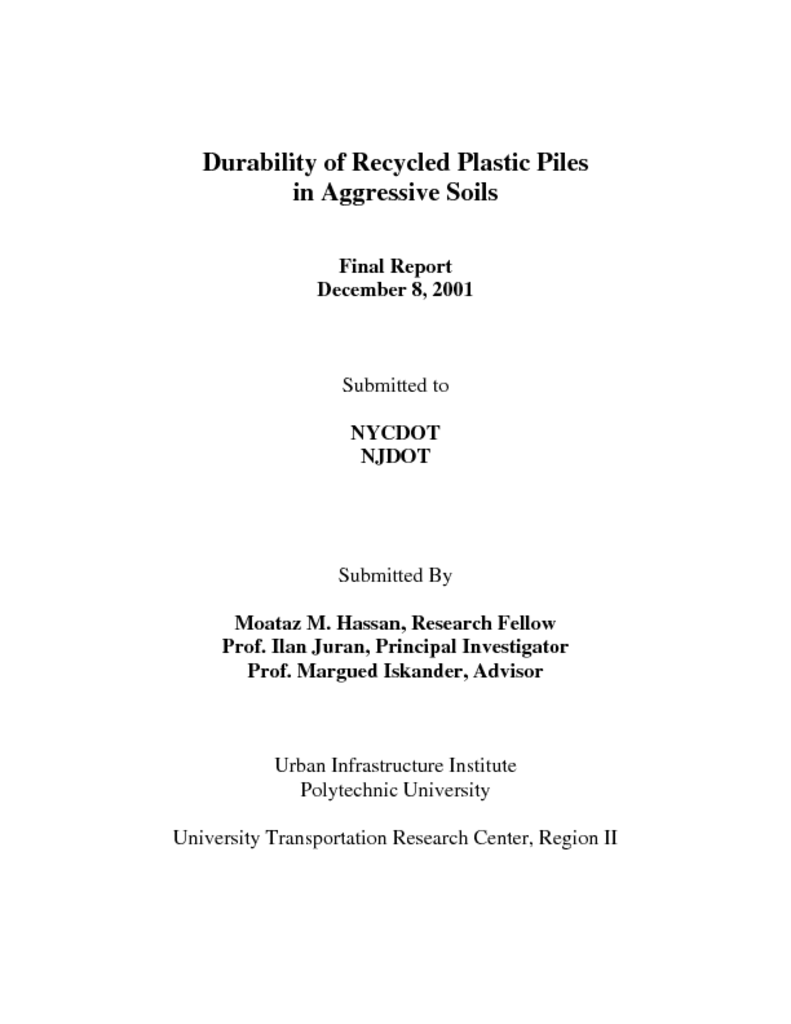In the United States millions of piles are used to support residential, commercial,
and transportation structures. There are, however, some problems associated with
the use of traditional piling. It is now more commonly required to install piles on
corrosive and contaminated soils, due to industrialization. The durability of
concrete, corrosion of steel, and deterioration of wood is a serious hindrance to
construction in these environments, particularly where high concentrations of
sulfides or chlorides are present.
The objective of this project is to assess the durability of piling made of recycled
plastics in aggressive soils for long term usage in civil infrastructure application.
'This required the development of acceleration tests permitting prediction of the
behavior of' the plastic piles in actual use, within the short duration of this project. The scope of this research is limited to the laboratory investigation of the accelerated
degradation of specimens of SeapileTM, which is manufactured by Seaward
International. The experimental program is intended as an empirical investigation
of the effects of specific environmental variables on the degradation process, in
order to estimate the product's service life.
In order to facilitate testing, specimens are exposed to solution with fixed acidic,
basic & neutral liquids at elevated temperature. An Arrhenius model is used to
quantify the degradation of the specimen & predict the service life of the product.
Arrhenius model estimates are based on results obtained under conditions of
intensive stirring of aqueous media which intensifies the degradation action. T here
fore, all calculations of strength loss should be considered as a conservative estimate
for the degradation rate for in-use condition.
Only the acidic environment had a considerable degradation effect on the SeapileTM
samples. At this severe acidic environment (pH=2) an estimated 25% loss in
resistance at 1% strain, of the coupon specimens extracted from Seapile cores takes
place in about 14 years. The half-life (50% loss) is estimated to occur in 33 years.
Larger diameters of plastic piles as compared to the 1/2'' coupon specimens may
result in delay of the degrada tion process, which may be caused by diffusion.
Publication Category


